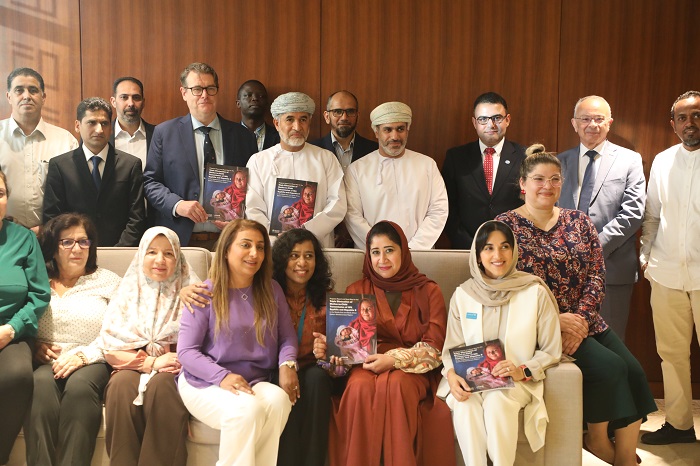Muscat: UNICEF, in partnership with PENTA, WHO and IOM, is hosting a regional capacity-building training on triple elimination of mother-to-child transmission of HIV, Syphilis, and Hepatitis B.
The workshop will continue till 16 May 2024, in the Sultanate of Oman under the patronage of Dr. Ahmed Salim Saif Al Mandhari, Undersecretary of the Ministry of Health for Planning and Health Organisation, at the Ministry of Health.
The training aims to strengthen existing capacities to prevent vertical transmission of HIV from mother to child and improve diagnostic, therapeutic, and preventive services for children, women, and youth.
It will share experiences and best practices, focusing on obtaining certification for eliminating mother-to-child transmission of HIV, syphilis, and hepatitis B
Emphasis will be on integrating the triple elimination interventions within maternal, newborn, child and adolescent health programmes as part of an integrated community based primary healthcare systems strengthening and addressing barriers to services for women, children and youth.
“This training is a crucial step towards achieving our goal; that no child is born with HIV, syphilis, or hepatitis B. While we join forces and unite our efforts and resources, sustained commitment and investment from governments are essential to bridge the gaps and reach marginalised communities,” said Sowmya Kadandale, UNICEF Regional Health Advisor.
The training includes healthcare providers from ministries of health from 11 countries in the region. It responds to the need to increase prevention, diagnosis, treatment and care of the three diseases in pregnant women, especially women in marginalized and vulnerable populations.
Many pregnant women living with HIV are missing out on treatment to protect their health and prevent their infants from acquiring HIV. Coverage of these vital interventions stood at a low 23 per cent in 2022 and has improved little in the past five years. Oman's progress in maintaining certification for the elimination of mother-to-child transmission of HIV and Syphilis is a celebrated highlight of these efforts.
Countries can close these gaps with stronger political commitment and more domestic funding for the elimination of vertical transmission, and by integrating those services with reproductive maternal, newborn, child and adolescent health programmes.
During the opening session of the programme, an overview of global advancements was provided, shedding light on the prevalence rates of HIV, syphilis and Hepatitis B in the region. Furthermore, a framework for triple elimination was introduced, culminating in the unveiling of a report titled "Progress Report and Roadmap for the Elimination of Mother-to-Child Transmission of HIV, Syphilis, and Hepatitis B."
The two-day training will centre on fundamental principles, key success factors , and recommendations, highlighting the significance of strengthening data and laboratory information systems including programme and service delivery. Additionally, it will cover topics such as community involvement, ensuring HIV-positive pregnant women have access to services, and tackling challenges related to diagnostic, therapeutic, and preventive care for children and youth.
